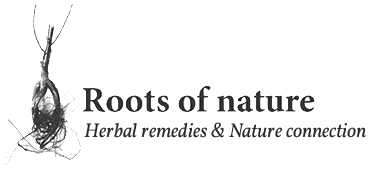Herbal medicine is the world’s oldest medicine and forms part of the most widely practiced primary medical healthcare system, increasing in use and popularity (1).
Medical herbalists use whole plant parts (such as leaves, flowers, berries, bark, roots) as opposed to isolated constituents mostly found in conventional medicine.
The difference is that within the whole plant extract not just the primary constituent but a vast amount of secondary constituents and compounds are present. These exude their effects whilst working synergistically with one another, creating a complex mix of phytochemicals.
This explains why Willow Bark reduces fever and inflammation yet also protects the mucous membranes often irritated by Aspirin. Aspirin (acetylsalicylic acid), is derived from only one isolated constituent found in Willow Bark (Salicin). In the whole plant extract of Willow Bark, secondary compounds actually soothe and reduce irritation and inflammation of the gut lining (mucosa).
Whole plant extracts offer a safe way yet appropriate plant knowledge and applications are key.
Herbalists not only address physical ailments with carefully blended medicinal plants but also aim to enhance and work with the individuals overall well-being, be it of emotional, spiritual or psychological nature.
Since the dawn of humanity plants have provided medicine for every age group, been the predominant food source, offered materials for shelter, ropes, clothing, dyes, rituals, art & perfumes.
Our long established and intrinsic plant knowledge has been evolving since our very beginning.
Animals instinctively know which plant to eat when they feel unwell, our human instincts, however, particularly in the developed world, have often been neglected, if not completely suppressed. Instincts are not useful to western society hence not encouraged but wouldn’t it be interesting to tune into our instincts a little more?
In traditional cultures medicinal plant knowledge and deeply evolved instincts are still ingrained into day to day life are thriving and deeply respected.
Herbalism has a foot in both worlds: the ancient traditions of herbal medicine & current scientific research and practice. Both can be interlaced effectively by a skilled herbalist, with the aim of returning balance and improved health to the individual, society & ecology.
Deepening our awareness with nature affects the way we see ourselves, each other and our environment. This consequently alters our lifestyle choices creating a ripple effect of positive change, so needed in these rapidly changing times.
Herbal medicine is more then just prescribing herbal remedies: it is educational, it fosters self-respect & self-worth. It offers tools to gain more control upon one owns’ life and encourages to help others.
Herbalism is people’s medicine. It should be available to all, regardless of class, gender, faith, culture or financial status. It is a life style choice, affecting the smallest of our decisions to the shifting of culture and mind. From picking your own wild salad to making elderflower cordial, start small; you will grow big before you realise.
References: 1. Traditional Medicine, WHO 2003, http://www.who.int/mediacentre/factsheets/2003/fs134/en/
A journey of a thousand miles starts with a single step
-Laozi
